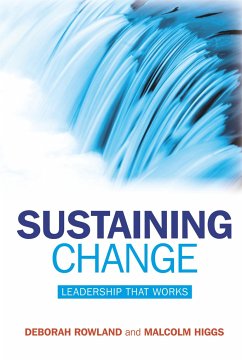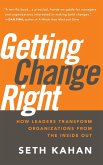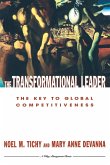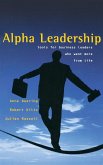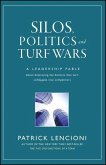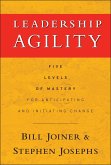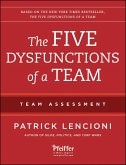A huge amount of change initiatives fail. Based on a combination of 4 years rigorous research and practical application of the emerging findings, the book explores the dilemmas related to the growing need for change and the difficulty in making change work. With empirical research of leaders in some of the most successful global organisations including PwC, Starbucks and Shell, this book will enable organisations to make substantial performance improvements in change leadership.
This is a book destined for leaders who wish to implement change more intelligently and effortlessly. Drawing on a combination of rigorous research and extensive organisational experience, the authors present a framework for leading change, 'Changing Leadership', that describes the specific leader practices they have found make the biggest differences between success and failure in implementing high magnitude change. Indeed these four practices, when used in combination, determined 50% of the reason why the changes they studied either succeeded or failed. In this respect, organisational change efforts that ignore the leadership dimension risk reducing their chances of successful implementation by a half.
In essence, the practices richly illustrated in this book require the leader to give up their notion of control over complex and large organisational systems, and instead work to create the conditions within which the organisation will more naturally do its' own changing'. This requires the leader to adopt a less ego-centric 'shaping' aproach to change and in this place adopt an approach that creates a magnetic pull in the towards its purpose, disturbs the currently unhelpful repeating patterns in its culture, and doing so in a way that enables people to process their natural anxiety about change. In doing all of this, the leader works to make change happen in the day to day activity and conversations of the organisation. This is not therefore a book about how to launch and roll out massive change 'programmes'. However, the leadership practices described are equally applicable to very significant and extensive organisational changes - perhaps even more so given the costs of failure and prizes of success in such cases.
Overall this is a book that will take the reader on a journey to confront their current approach to leading change, examine the personal beliefs and assumptions that may underpin this, and provide practical advice on how to become more effective.
'Whether you are a CEO, an HR Director or a Change practitioner, this is the most valuable book you will read this year. Based on ground-breaking research and brought to life with numerous case studies, this is that rare entity: a business book which is accessible, insightful and thorough.' - Mick Holbrook
'A leadership guide both practical and research validated that explains what to do to achieve sustained change and at last a clear insight into why so many change attempts get stuck and fail.' - Lynn L. Elsenhans
'The who, what, why and how of change leadership...a marvellous manifesto for practitioners and consultants alike, derived from extensive workplace experience and deep consideration of key aspects. It's the definitive manual on successful change leadership in today's world - how to bring it about and how to make it stick.' - Adrian Loader
Hinweis: Dieser Artikel kann nur an eine deutsche Lieferadresse ausgeliefert werden.
This is a book destined for leaders who wish to implement change more intelligently and effortlessly. Drawing on a combination of rigorous research and extensive organisational experience, the authors present a framework for leading change, 'Changing Leadership', that describes the specific leader practices they have found make the biggest differences between success and failure in implementing high magnitude change. Indeed these four practices, when used in combination, determined 50% of the reason why the changes they studied either succeeded or failed. In this respect, organisational change efforts that ignore the leadership dimension risk reducing their chances of successful implementation by a half.
In essence, the practices richly illustrated in this book require the leader to give up their notion of control over complex and large organisational systems, and instead work to create the conditions within which the organisation will more naturally do its' own changing'. This requires the leader to adopt a less ego-centric 'shaping' aproach to change and in this place adopt an approach that creates a magnetic pull in the towards its purpose, disturbs the currently unhelpful repeating patterns in its culture, and doing so in a way that enables people to process their natural anxiety about change. In doing all of this, the leader works to make change happen in the day to day activity and conversations of the organisation. This is not therefore a book about how to launch and roll out massive change 'programmes'. However, the leadership practices described are equally applicable to very significant and extensive organisational changes - perhaps even more so given the costs of failure and prizes of success in such cases.
Overall this is a book that will take the reader on a journey to confront their current approach to leading change, examine the personal beliefs and assumptions that may underpin this, and provide practical advice on how to become more effective.
'Whether you are a CEO, an HR Director or a Change practitioner, this is the most valuable book you will read this year. Based on ground-breaking research and brought to life with numerous case studies, this is that rare entity: a business book which is accessible, insightful and thorough.' - Mick Holbrook
'A leadership guide both practical and research validated that explains what to do to achieve sustained change and at last a clear insight into why so many change attempts get stuck and fail.' - Lynn L. Elsenhans
'The who, what, why and how of change leadership...a marvellous manifesto for practitioners and consultants alike, derived from extensive workplace experience and deep consideration of key aspects. It's the definitive manual on successful change leadership in today's world - how to bring it about and how to make it stick.' - Adrian Loader
Hinweis: Dieser Artikel kann nur an eine deutsche Lieferadresse ausgeliefert werden.

